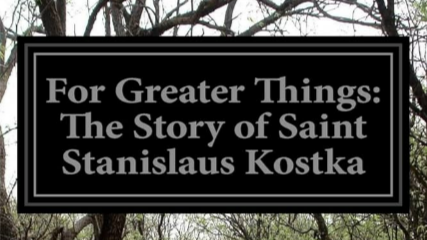Chapter V‑For Greater Things
byChapter V – For Greater Things explores the academic and spiritual formation of Stanislaus Kostka during his time at the Jesuit college in Vienna, a city alive with intellectual energy and strong Catholic identity in the mid-16th century. Amid a culture steeped in both tradition and theological shifts, the Jesuits had recently established a school designed to cultivate not just the intellect but the soul. Stanislaus entered this environment with quiet enthusiasm, embracing a curriculum that blended classical learning with religious discipline. Latin was the core of their studies, serving as the common thread for reading, writing, and communication, while other subjects—rhetoric, logic, and introductory sciences—rounded out their intellectual training. Physical education was equally valued, especially for noble youths, and included fencing, horseback riding, and archery. These practices reinforced discipline, resilience, and social expectations for young men of high birth. Yet, amid these structured routines, Stanislaus emerged not just as a student—but as a moral compass.
Though accomplished academically and physically, what truly distinguished Stanislaus was his character. He was respected not for any ambition or showmanship, but for his integrity, humility, and an almost contagious inner peace. He carried himself with a kindness that disarmed even those who envied him. While others sometimes competed for status, Stanislaus made himself known through service and sincerity. His devotion to God, particularly through his involvement in the Marian sodality, reflected a spiritual maturity uncommon for someone so young. He often took the lead in organizing gatherings or giving talks that stirred not just interest but genuine reflection. These were not flowery speeches, but heartfelt expressions rooted in conviction and clarity. His classmates listened—not because they were obliged, but because they recognized something rare in him: someone who spoke as he lived, without contradiction.
Even in leisure, Stanislaus showed that faith and joy were not at odds. Whether at sport or study, he remained cheerful and engaged, yet never boastful or cruel. His influence quietly shaped the atmosphere of the college. Peers often found in him a calming presence—someone to confide in or to emulate. His love for the Virgin Mary guided many of his daily choices, from small acts of charity to larger displays of self-discipline. This devotion wasn’t performative; it was rooted in habit, shaped by hours of prayer and a constant sense of being in God’s presence. Teachers and Jesuit mentors began to take notice of this hidden sanctity. Without seeking praise, Stanislaus had become a model of what the Jesuit system hoped to produce: a scholar who lived for others, grounded in grace.
The college itself served as a microcosm of broader Jesuit ideals—forming men who were intellectually sharp, morally grounded, and socially responsible. For Stanislaus, every assignment and every discipline was another opportunity to draw closer to the divine. He saw no divide between academic excellence and spiritual growth. His studies were not just obligations, but offerings. This integrated view of life set him apart from students who separated religion from daily life. Though just a teenager, Stanislaus embraced a profound understanding of vocation: that one’s calling isn’t postponed until adulthood, but begins now, in the classroom, in friendships, in silence. He did not expect an easy path, but he trusted that fidelity in small things would prepare him for greater ones.
Even when faced with misunderstandings or subtle teasing from classmates who didn’t share his zeal, he never responded with sarcasm or complaint. He absorbed the occasional mockery with grace, and often returned it with kindness or prayer. This ability to forgive quickly and without pride revealed a spiritual depth far beyond the classroom walls. Though his life at the college may have seemed ordinary to passersby, within its routine he was already becoming extraordinary. His choices, friendships, and quiet sacrifices hinted at a calling that was forming not in dramatic moments, but through daily fidelity. These school days, rich in study, struggle, and unseen triumphs, became the foundation of the saint he would become—shaped by a Jesuit vision of education that formed both intellect and soul.

